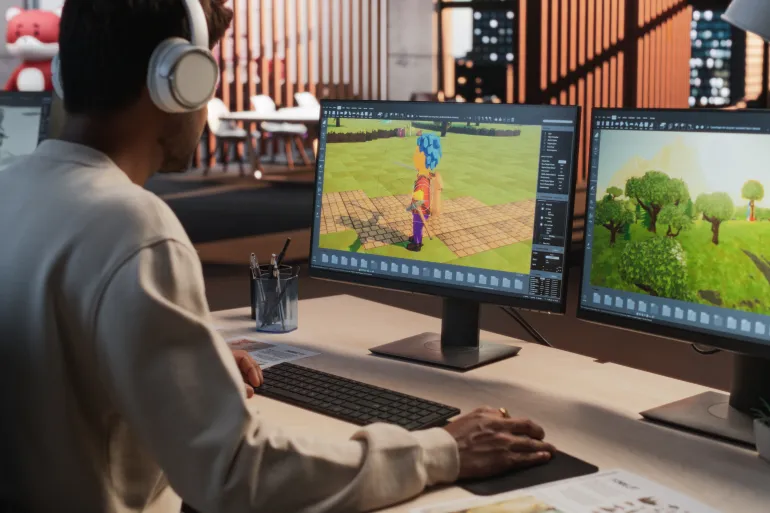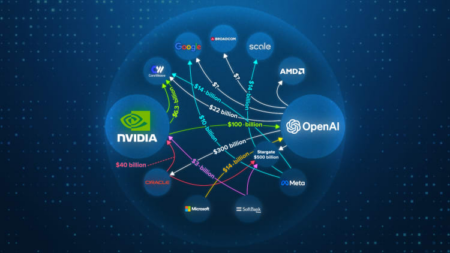A recent Google Cloud survey, reported by Reuters, revealed that 87% of game developers rely on artificial intelligence (AI) in their daily tasks.
Game developers said that AI helps in automating the repetitive processes, allowing them to focus on creative aspects of game design and storytelling.
AI as a Tool for Efficiency and Cost Reduction
The adoption of AI technologies in game development is becoming a strategic solution for companies facing rising production costs, lengthy development cycles, and fierce competition.
By integrating AI, studios can streamline workflows, accelerate production, and enhance game quality.
Global Participation and Insights
The survey, conducted in collaboration with Harris Poll, gathered responses from 615 game developers across countries such as the United States, South Korea, Norway, Finland, and Sweden.
Many participants highlighted how AI-powered automation gives them more time for innovation and experimentation in game development.
Expanding Role of AI in Gaming
Beyond simple automation, 44% of game developers reported using AI to enable autonomous decision-making—improving content, managing information, and even generating text, audio, and code snippets.
However, the study also revealed challenges.
63% of developers expressed concerns over data ownership and copyright rights when AI generates or processes content, leaving companies potentially vulnerable to legal disputes.
Read also: Is the AI Winter Coming and Why GPT-5 Launch Raise Investors Concern?
Industry Concerns Over Jobs
While companies view AI as a cost-saving tool, industry workers are increasingly worried.
Job security remains a major fear, with employees concerned that AI could replace roles or significantly lower wages.
Last year, video game representatives in Hollywood protested against the growing use of AI, warning that over 10,000 jobs had already been lost due to automation in the industry.
The Future of AI in Gaming
The survey reflects these anxieties, with 94% of developers agreeing that AI will dramatically reduce the cost of game development in the long term.
Yet, measuring the return on investment (ROI) of AI technologies remains a challenge.
As AI continues to reshape the gaming sector, the industry faces a delicate balance: harnessing innovation while addressing ethical, legal, and employment concerns.








